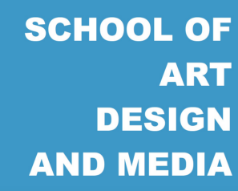Dr. Wenzhu Li is an Associate Professor and Master’s Supervisor in the Department of Landscape Planning and Design at the School of Art Design and Media, East China University of Science and Technology. She completed her postdoctoral research and served as an Assistant Research Fellow in the Department of Urban Planning at the School of Architecture, Tsinghua University.
Her research in recent years has centered on spatiotemporal analysis in digital cities and sustainable design. She has received funding from the National Natural Science Foundation of China and four additional research projects, and has contributed to several major national initiatives, including key R&D programs under the 14th Five-Year Plan, as well as significant NSFC and engineering projects.
Dr. Li has published more than 20 academic papers as first or corresponding author in leading journals such as Sustainable Cities and Society, Developments in the Built Environment, and Applied Geography. Her work has been widely recognized, earning the Gold Award from the International Society for Urban Informatics, the Heilongjiang Provincial Award for Excellence in Urban and Rural Planning, and awards for Outstanding Teaching Materials and Research Papers at the Annual Conference on Urban and Rural Planning Education. She has also received over ten professional awards from organizations including the AIA and ACSA.
Her research outcomes have been showcased at internationally renowned exhibitions such as the Venice Biennale and the Shenzhen-Hong Kong Bi-City Biennale of Urbanism/Architecture. In recognition of her academic excellence, she has been named an Outstanding Postdoctoral Fellow at Tsinghua University, an Outstanding Graduate of Shanghai, and an Excellent Student of Tongji University. She has also been selected for the prestigious Shanghai Chenguang Talent Program.
Email: LiWenzhuArch@163.com
Office: Room 209, Chenyuan Building, Xuhui Campus, East China University of Science and Technology
Awards and Honors
1. 2024. Chenguang Scholar, Shanghai Municipal Government.
2. 2023. Outstanding Postdoctoral Fellow, School of Architecture, Tsinghua University.
3. June 2025. Teaching Paper Award. Pedagogical Pathways and Practice for Urban Regeneration Empowered by Generative AI, Annual Conference on Urban and Rural Planning Education in Chinese Universities awarded by the Ministry of Education and the Academic Committee (1/3).
4. June 2025. Outstanding Teaching Plan Award. Urban Regeneration in the Digital Era, Annual Conference on Urban and Rural Planning Education in Chinese Universities (1/1).
5. May 2025. Third Prize, Outstanding Report, Youth Forum on Territorial Spatial Planning. Automatic Identification of Potential Renewal Areas Using Remote Sensing and GeoAI, Chinese Society for Natural Resources (1/4).
6. October 2024. Outstanding Teaching Plan Award. Urban Regeneration Curriculum Series, Annual Conference on Urban and Rural Planning Education in Chinese Universities (1/1).
7. December 2023. Finalist Award, 2023 Future City Awards. Future City Planning and Construction in Heihe (2/22).
8. August 2023. Gold Award, Smart City Technology Innovation Awards. Future Urban Spaces Empowered by Technology Series (3/19).
9. March 2023. Third Prize, Heilongjiang Provincial Excellent Urban and Rural Planning Design Award. Future City Planning for Heihe (6/15).
10. November 2020. Award of Excellence, AIA Honolulu Student Design Awards Sustainable Community Farming in Urban Shanghai (1/4).
11. August 2020. Honorable Mention, 2020 ACSA Steel Design Student Competition. Hongkou Hub (1/4).
12. August 2019. Gold Award and Best Planning Award, Yangtze River Delta Landmark Design Competition. Urban Core (2/5).
Exhibitions
1. 2023. Shrinking Cities in China Shaped by Disruptive Technologies. Venice Biennale (Main Contributor)
2. 2023. Connection/Practice of Linkage and Assembly. Tianjin International Design Week Architecture Exhibition (Main Contributor)
3. 2022. Shrinking Cities: Status Quo and Opportunities for Low-carbon Regeneration. 9th Shenzhen-Hong Kong Urbanism/Architecture Bi-City Biennale (UABB) (Co-exhibitor)
4. 2022. Technological Empowerment of Future Urban Spaces. Beijing International Design Week Urban Design Exhibition (Main Contributor)
Academic Services
Journal Reviewer: Cities, Journal of Cleaner Production, Transactions in Urban Data, Science and Technology, International Journal of Urban Sciences, China City Planning Review (CCPR), Landscape Architecture, Landscape Architecture Frontiers, among others.
Professional Affiliations and Roles:
Since 2025:
Youth Editorial Board Member, 《Human Settlements and Sustainability》; Executive Editorial Board Member, 《Landscape Architecture Frontiers (Chinese-English bilingual)》; Youth Editorial Board Member, 《World Architecture Review》.
Since 2024: Expert Member, WGDO International Standards Committee on Green Design.
Since 2024: Member, Urban Planning Society of China; Member, Chinese Society of Landscape Architecture.
Since 2023: Member, Architectural Society of China; Member, Geographical Society of China; Member, International Society for Urban Informatics (ISUI).
Courses Taught:
Fundamentals of Architectural Design, Architectural Design, Urban Regeneration, Theories and Methods of Urban Design
Personal Academic Profiles
ResearchGate:https://www.researchgate.net/profile/Wenzhu-Li-5
Google Scholar:https://scholar.google.com/citations?hl=en&user=y3iXIecAAAAJ&view_op=list_works&sortby=pubdate
Urban design and urban analysis; urban spatial transformation in the digital age; urban artificial intelligence; sustainable urban regeneration.
1. Wenzhu Li*, Hui Wang, Xinyu Wang, Tangqi Tu**. Automatic Identification of Potential Renewal Areas in Urban Residential Districts Using Remote Sensing Data and GeoAI. IEEE Journal of Selected Topics in Applied Earth Observations and Remote Sensing, 2025, 18: 8523–8535. https://doi.org/10.1109/JSTARS.2025.3549618. (SCI, Q1, IF=4.7, First Author)
2. Wenzhu Li, Enjia Zhang, Ying Long*. Unveiling Fine-Scale Urban Third Places for Remote Work Using Mobile Phone Big Data. Sustainable Cities and Society, 2024, 103: 105258. https://doi.org/10.1016/j.scs.2024.105258. (SCI, Q1, IF=11.7, First Author)
3. Wenzhu Li, Meng Meng*, Clark E. Llewellyn, Tongyu Sun*. Developing an Indicator Framework for Sustainability Assessment in Urban Community Regeneration: A Case of Shanghai. Developments in the Built Environment, 2024, 18: 100476. https://doi.org/10.1016/j.dibe.2024.100476. (SCI, Q1, IF=8.2, First Author)
4. Wenzhu Li, Ningrui Liu, Ying Long*. Assessing Carbon Reduction Benefits of Teleworking: A Case Study of Beijing. Science of the Total Environment, 2023, 889: 164262. https://doi.org/10.1016/j.scitotenv.2023.164262. (SCI, Q1, IF=10.753, First Author)
5. Runxian Wang, Sihan Liu, Wenzhu Li*, Tongyu Sun*. Exploring Neighborhood Daily Activity Patterns from the Perspective of Mobility Using Location-Based Services Data: A Case Study of Shanghai. Applied Geography, 2025, 183: 103733. (SSCI, Q1, IF=5.4, Co-Corresponding Author)
6. Enjia Zhang, Wenzhu Li, Ying Long*. Uncovering How Online Attractiveness Mediates and Moderates the Impact of Multi-Scale Transportation Accessibility on Non-Work Mobility. Travel Behaviour and Society, 2025, 39: 100991. (SSCI, Q1, IF=5.1)
7. Wenzhu Li, Runxian Wang, Peixiao Wang, Tongyu Sun*. Sustainability Assessment of Urban Community Regeneration: Research Progress and Analytical Framework. Journal of Western Human Settlements Environment, 2025, 40(02): 88–96. (Peking University Core Journal, First Author)
8. Wenzhu Li, Junhao Xia, Yu Hu, Ying Long*. Reshaping and Designing Urban Office Spaces with Polymorphic Data Support. World Architecture, 2025, (Z1): 26–30. (First Author)
9. Wenzhu Li, Jianing Liang, Weijian Li, Wenyue Li, Chunlong Wang, Ying Long*. Planning Responses for Future Urban Space Driven by Technology: A Case Study of Heihe’s National Territorial Spatial Planning. Planners, 2023, 39(03): 27–35. (CSSCI Extended, Peking University Core Journal, First Author)
10. Wenzhu Li*, Jianing Liang. A Review of the Carbon Reduction Benefits of Future Urban Spaces Enabled by Emerging Technologies. Journal of Urban and Regional Planning Studies, 2023, 15(01): 111–128. (CSSCI Source Journal, First Author)
11. Jianing Liang, Wenzhu Li*, Weijian Li, Ying Long. Application Scenarios and Practical Paths of Urban Landscapes Driven by Digital Technologies. Landscape Architecture, 2023, 30(07): 29–35. (Peking University Core Journal, Corresponding Author)
12. Wenzhu Li, Xunfeng Liu*. Collaborative Optimization of Multiple Factors in Urban Renewal of HafenCity, Hamburg. Residential Technology, 2020, 40(08): 16–24. (Peking University Core Journal, First Author)
13. Wenzhu Li*, Mengyue Mei. Design Strategies for Riverside Greenways in Urban Cores Based on Ecological Restoration: A Case Study of the Jinjiang River, Chengdu. Urbanism and Architecture, 2020, 17(31): 185–189. (First Author)
14. Shujie Zhang, Wenzhu Li, Ying Long*, Yajing Zhou, Zhiming Pan. Evaluation of Pedestrian Facility Improvements Based on Multi-Year Street View Images: A Case Study of 45 Cities in China. Urban Development Studies, 2022, 29(06): 53–64+73. (CSSCI, CSCD, Peking University Core Journal)
15. Meng Meng, Wenzhu Li, Shifu Wang, Juan Yan*, Vincent Nadin. Climate Adaptive Planning from a Governance Perspective: The Integrated Process of Water Management and Spatial Planning in the Netherlands. Urban Planning International, 2021, 36(05): 41–51. (CSSCI, CSCD, Peking University Core Journal)
16. Wenzhu Li, Tangqi Tu, Jingjia Chen, Ying Long*. Assessing the Relationship of Transit-Oriented Development on Urban Vitality. Proceedings of the 18th International Conference on Computational Urban Planning and Urban Management (CUPUM), 2023. (International Conference Paper, First Author)
Principal Investigator
1. 2025–2027. Mechanisms of Transformation and Design Responses of Urban Office Spaces under the Influence of Remote Work. Funded by the National Natural Science Foundation of China Youth Program.
2. 2024–2026. Optimizing Inefficient Office Spaces through Generative AI, supported by the Chenguang Program, Shanghai Municipal Education Development Foundation and Shanghai Municipal Education Commission.
3. 2024–2025. Spatiotemporal Patterns and Mechanisms of Remote Work in the Context of Smart Society, funded by the Fundamental Research Funds for the Central Universities.
4. 2024–2025. University-Industry Collaborative Teaching Practice Program, East China University of Science and Technology.
5. 2024–2025. Curriculum Ideology and Politics Teaching Reform Demonstration Course Construction, School of Art Design and Media, East China University of Science and Technology.
Participant
1. 2024–2026. Key Technologies and Equipment for Accessible Public Environments, a sub-project of the National Key R&D Program of China (14th Five-Year Plan). Human–Environment–Technology Integration Mechanism for Age-Inclusive and Accessible Environments (Key team member).
2. 2024–2028. Theories and Methods for Resilient Planning in Urban Agglomerations Driven by Data Intelligence, National Natural Science Foundation of China Major Project.
3. 2016–2021. New Goal- and Performance-Oriented Methods and Tools for Green Building Design, a sub-project of the National Key R&D Program (13th Five-Year Plan). Green Design Methods and Optimization Technologies for Residential Buildings in Southern China.
4. 2023–2026. International Standardization of Green Design, World Green Design Organization.
5. 2023–2025. Cultural Environment Optimization of Fengxian Campus, East China University of Science and Technology Key Cultural Project.
6. 2023–2024. Numerical Analysis Platform and Optimization Strategies for Commercial Real Estate Based on Life-Cycle Embedded Carbon, Tsinghua University–Hang Lung Center for Real Estate Studies.
7. 2021–2023. Future City Planning for Heihe City, Heilongjiang Institute of Urban Planning & Design (Key team member).
8. 2021–2022. WeCity X Science and Technology Planning Project, Tencent Technology (Shenzhen) Co., Ltd.
9. 2018–2020. Design and Development of Bridge Schemes No. 3 and No. 7 for Hangzhou Asian Games Village (Completed; Key team member).
10. 2017–2018. Urban Design for Hangzhou Asian Games Village.



